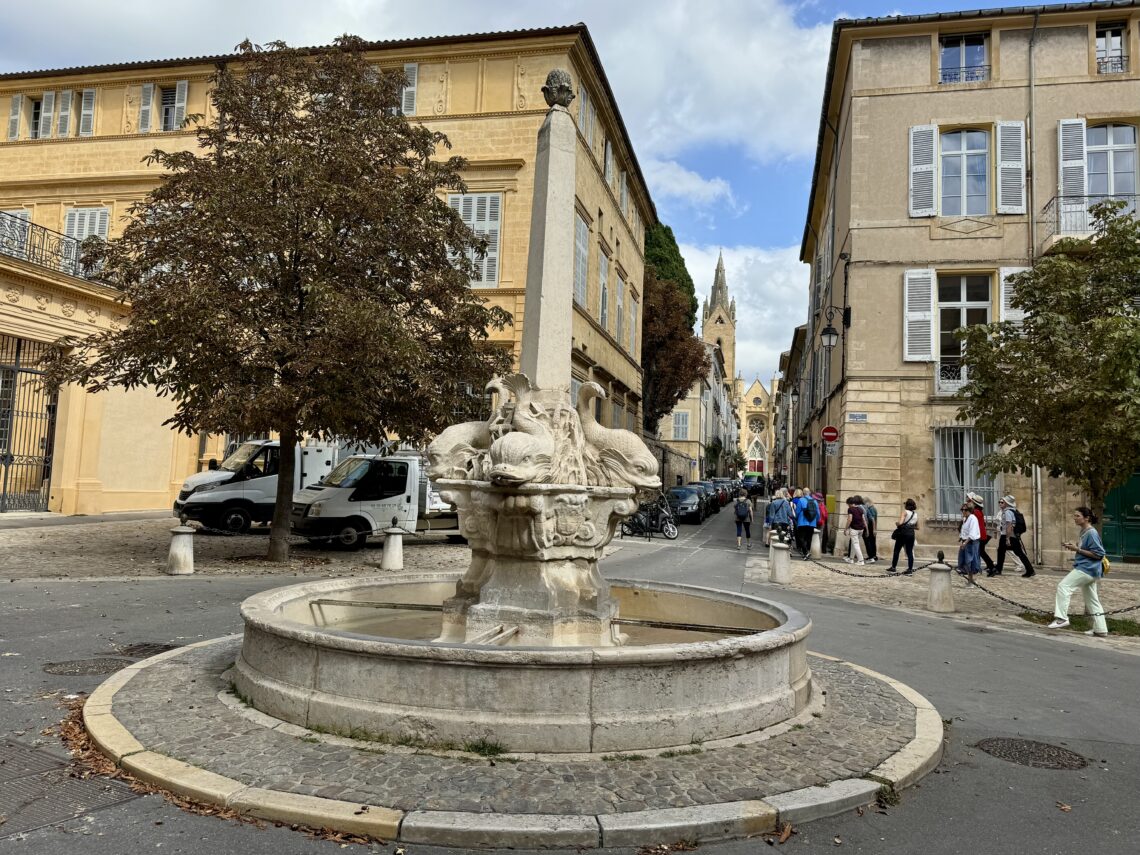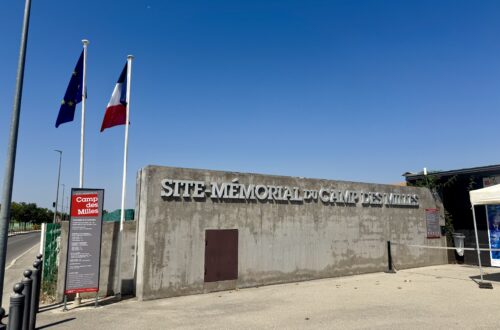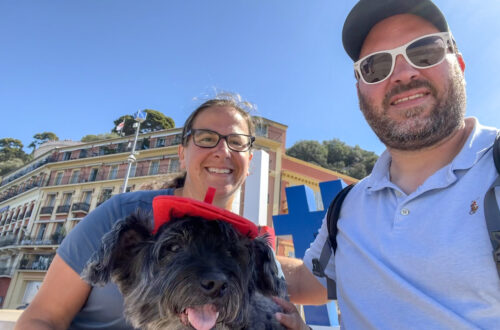To start our mid-August 10-day road trip from Nice through a few other French cities, Nik, Koval, and I headed back to Aix-en-Provence. Our goal for the trip was to get out of the city for a few days and find some cooler temps. We split our stay between a hotel close to Old Town and an Airbnb 20 minutes away that we previously stayed at.
Staying Near Old Town
After picking up a rental car and loading it up, we hit the road for the roughly two hour drive to Aix-en-Provence where we stayed two nights at the pet friendly Renaissance. The hotel had a very comfortable lobby, which we hung out in quite a bit with Koval for the ease of taking him out for walks. There was also a lovely pool which Nik and I enjoyed since the weather was still very hot and sunny.

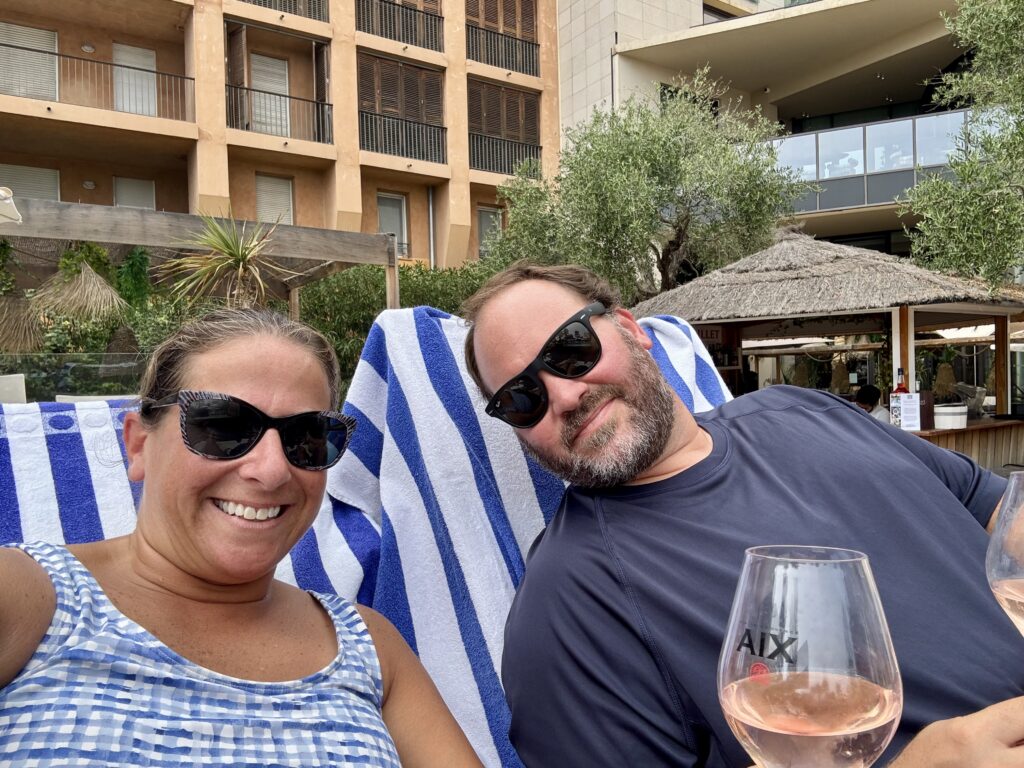
Part of why we stayed here was so we could spend more time in Old Town. On our last visit to Aix, we stayed about 20 minutes away and we didn’t want to navigate a curvy drive back at night with very little street light.
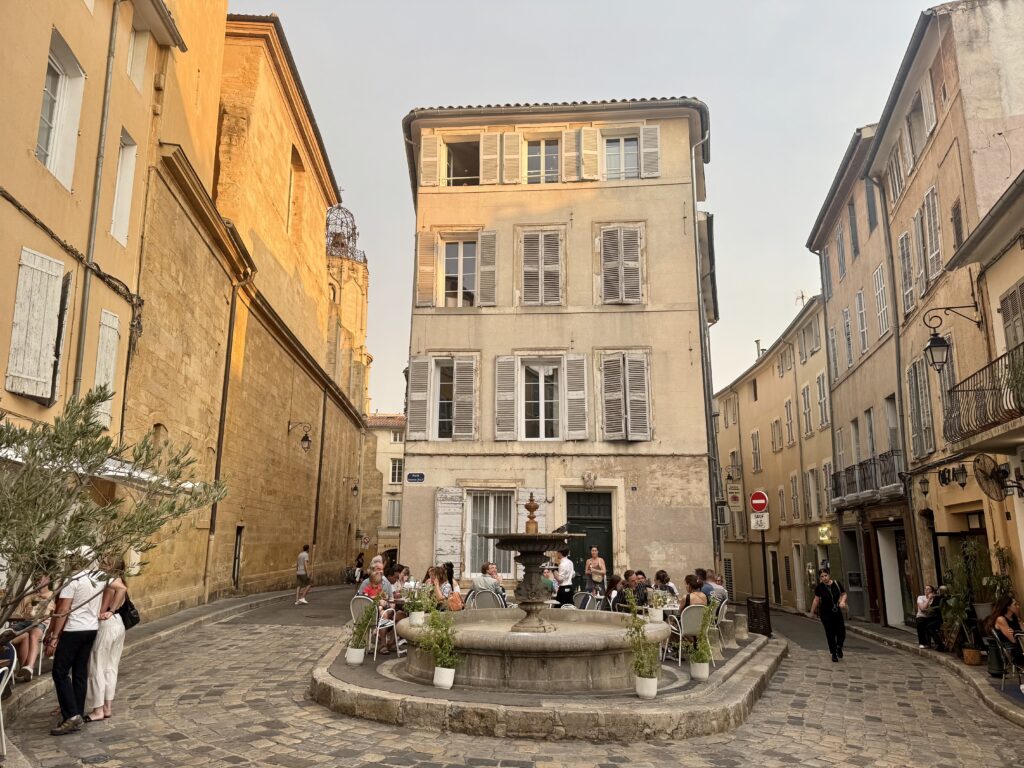
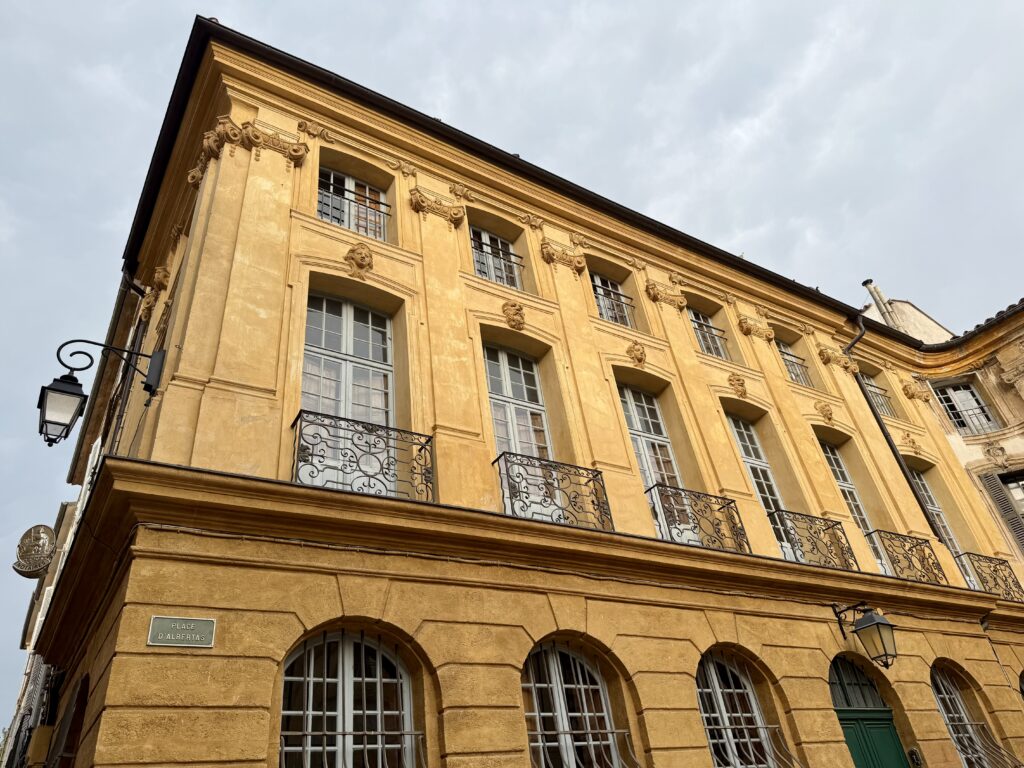
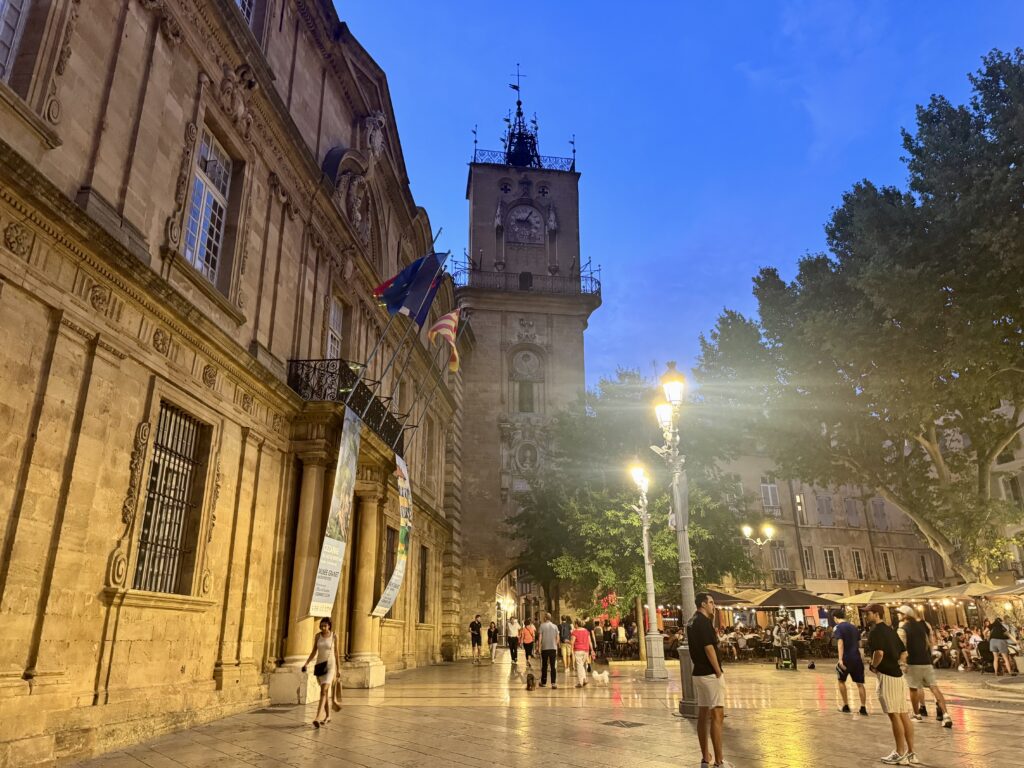
We really enjoyed being able to wander Old Town with such an easy walk to our hotel. Cocktails at Eden Bar were great as was its proximity to the square surrounding Hôtel de Ville, the Town Hall of Aix. Dinners included Chinese food at No Name Restaurant and Italian at Maurizio. The latter filled up fast, so we were lucky to get a table.
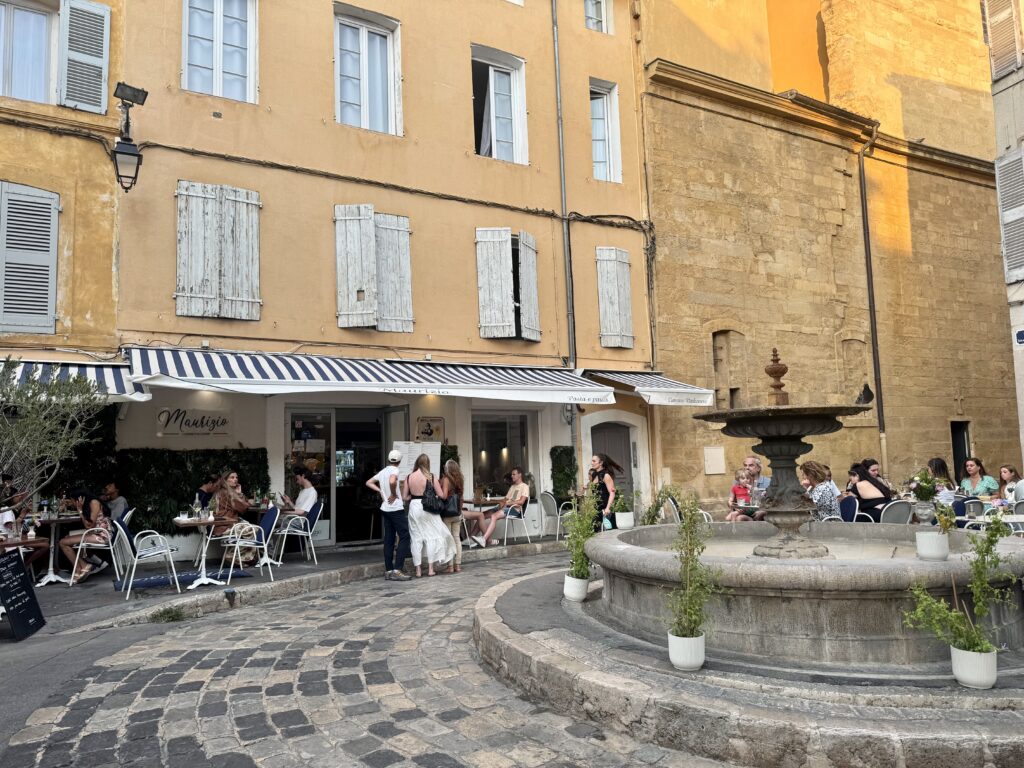
Countryside of Aix-en-Provence
Mostly for the pool, Nik and I decided to return to the great Airbnb we stayed at in the fall of 2024. It’s a lovely studio coach house on the same property where the owners live. And since our first stay, they have completely redone the pool and we took advantage of enjoying it this visit.
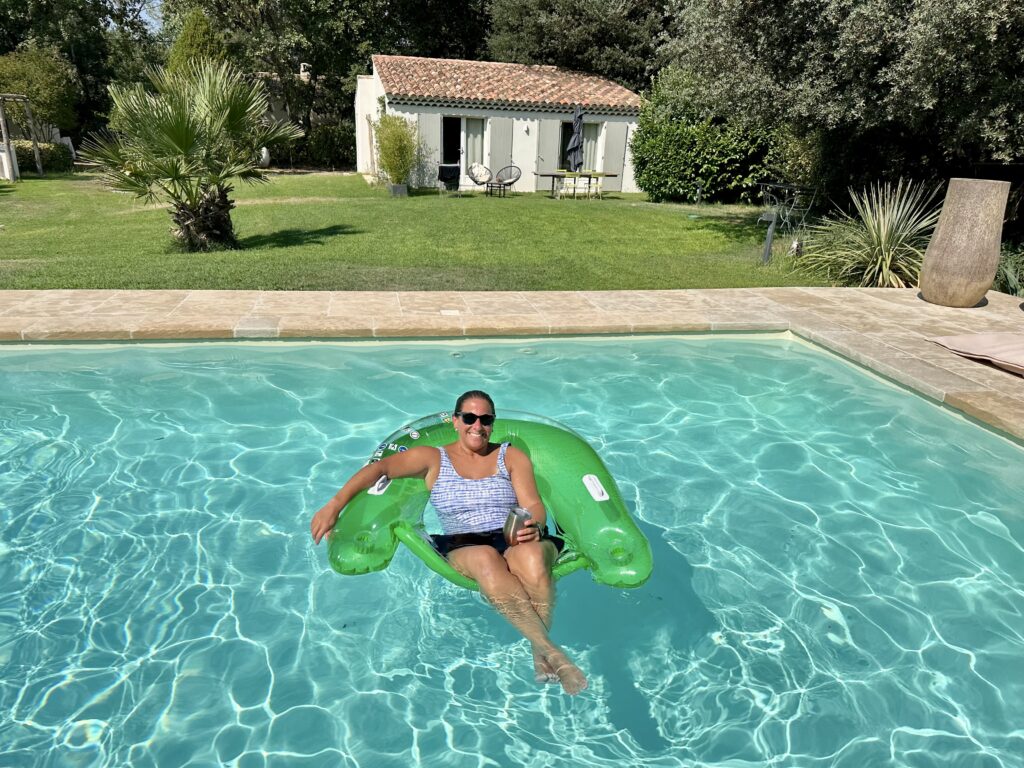
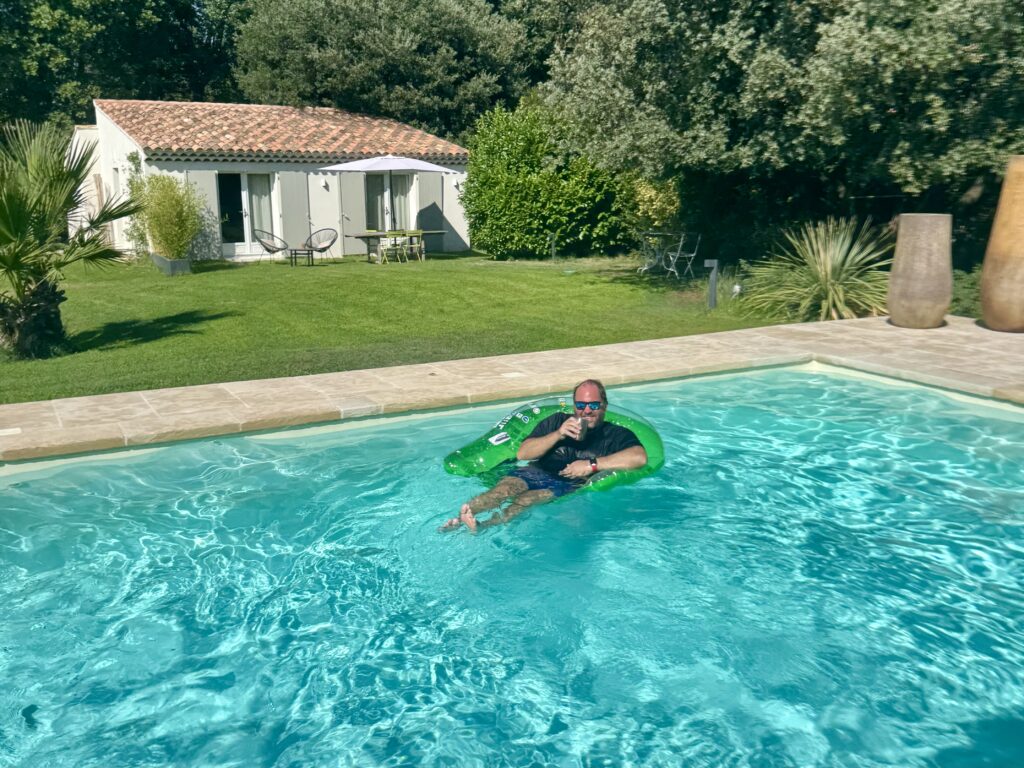
The lush grass was a bonus for some great pictures of Koval.

Day Trips from Aix-en-Provence
A couple places that were on our list to see during our last stay, but didn’t get to, included day trips to Camp des Milles and to the town of Avignon. Below is a quick summary of the camp as I have a more detailed post here.
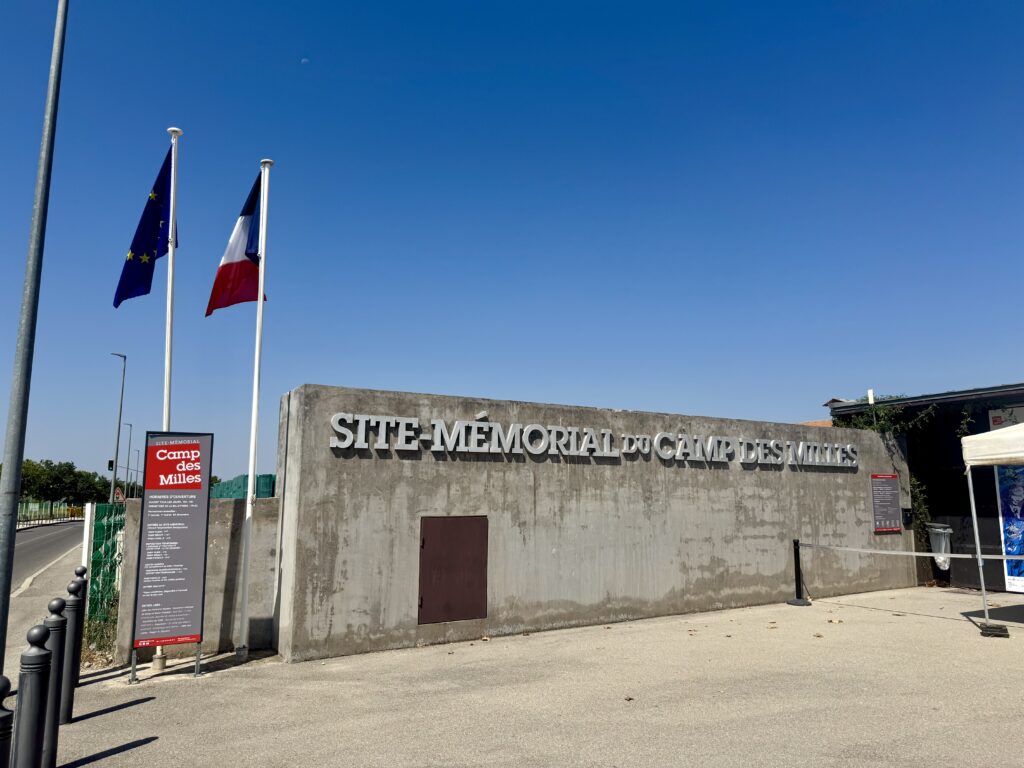
Camp des Milles
Camp des Milles was a French internment camp that opened in September 1939, in a former tile factory near the village of Les Milles, part of Aix-en-Provence.
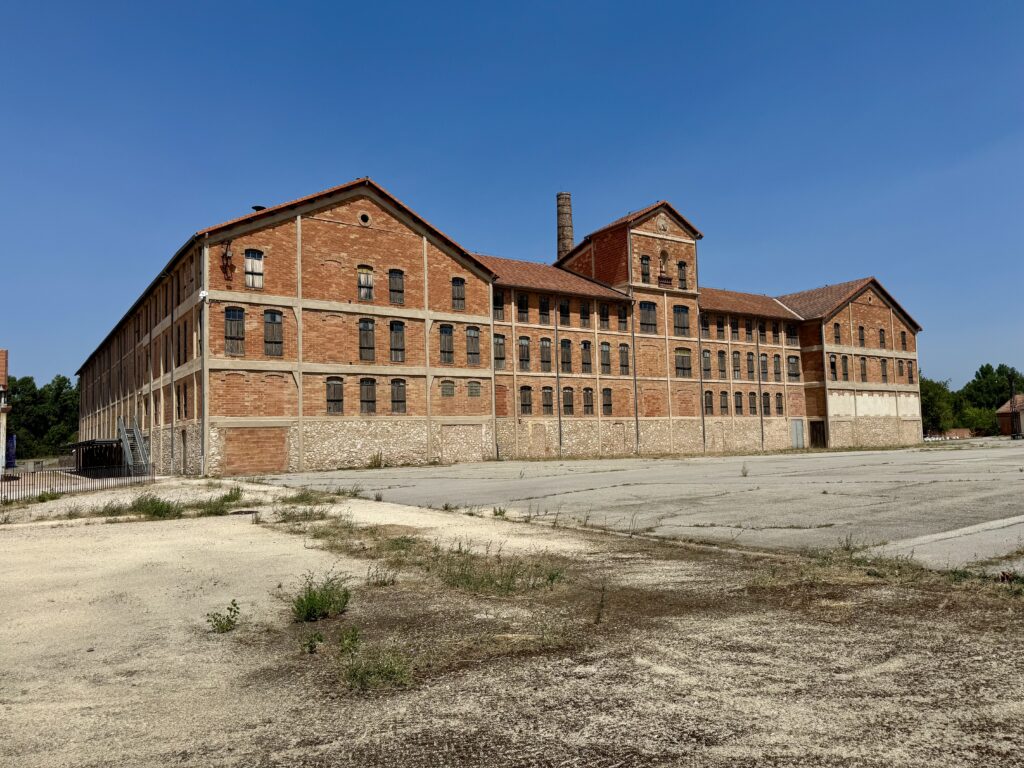
It is the only French internment camp to remain intact and is now a memorial site that houses a large history museum with a strong focus on education and culture. The numerous audiovisual pieces and illustrations throughout present the history of Camp des Milles and historical contexts between the two World Wars.
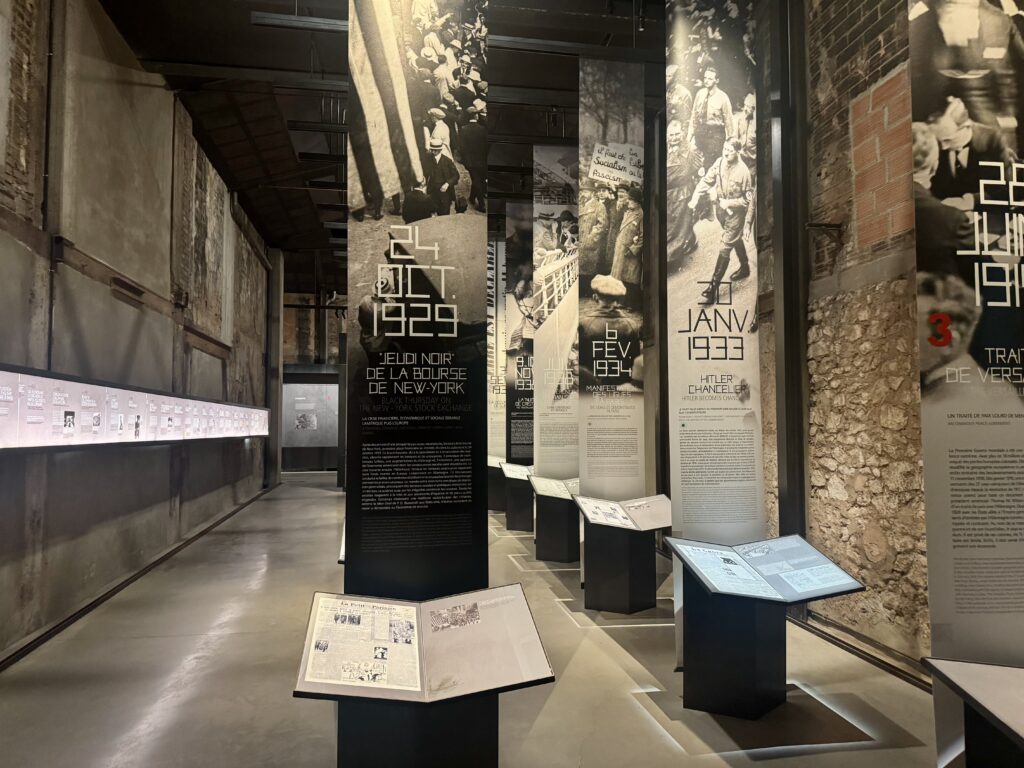
At first it was mostly Germans and ex-Austrians living in the Marseille area that were interned. By June 1940, some 3,500 artists and intellectuals were detained there.
In the fall of 1940 the internment camp, under the rule of the Vichy government (French fascists that implemented anti-Semitic policies) became a transit camp that sent Jews to death camps during World War II. Altogether, French authorities handed over more than 2,000 Jews interned in Les Milles to the Germans to be sent to Auschwitz.
Aside from the various displays on the main level of the museum, you also see different remnants of its past as a factory. Things were incredibly well preserved.
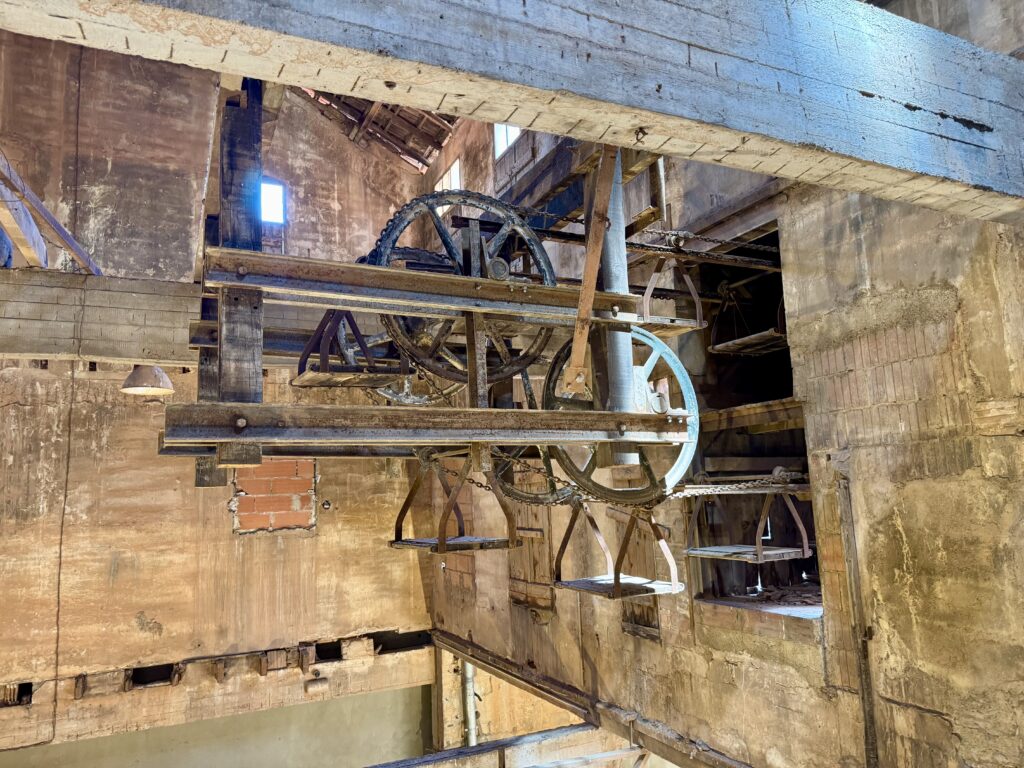
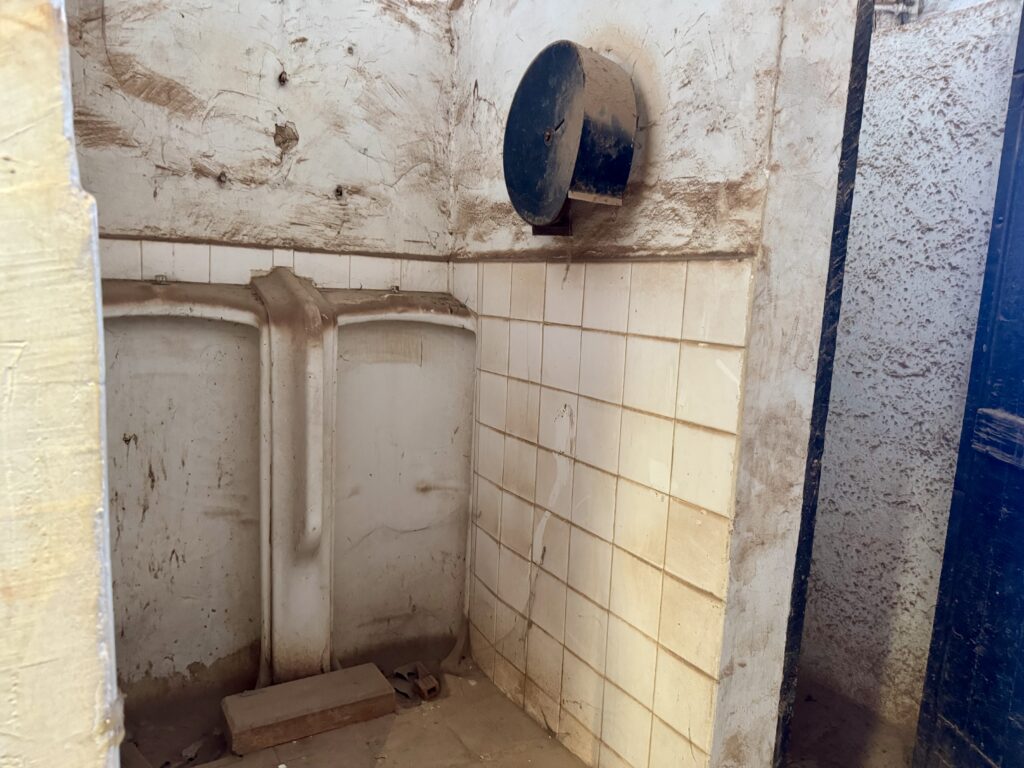
The camp closed in December 1942 with the remaining prisoners relocated to the camps of Gurs and Rivesaltes.
There were plans to tear down parts of the camp in the 1980s. Fortunately the municipality of Aix-en-Provence, along with several survivors and resistance fighters, petitioned the government to save the rooms. They also advocated to make the camp a memorial site. (It opened to the public in 2012.)
Related: In depth recap of visiting Camp des Milles
I go into much more detail in this post strictly focused on visiting the memorial site and additional commemorations that were inaugurated over the early years of its planning.
If you’re ever in the Aix-en-Provence area, we highly recommend a visit here. Admission costs just 11€, and memorials like this matter now more than ever to help us remember history.
Town of Avignon
An hour drive from our Airbnb is the town of Avignon. From 1309 to 1377, it was the seat of the Catholic popes. It remained under papal rule until becoming part of France in 1791. You can see this legacy in the massive Palais des Papes (Popes’ Palace) in the city center.
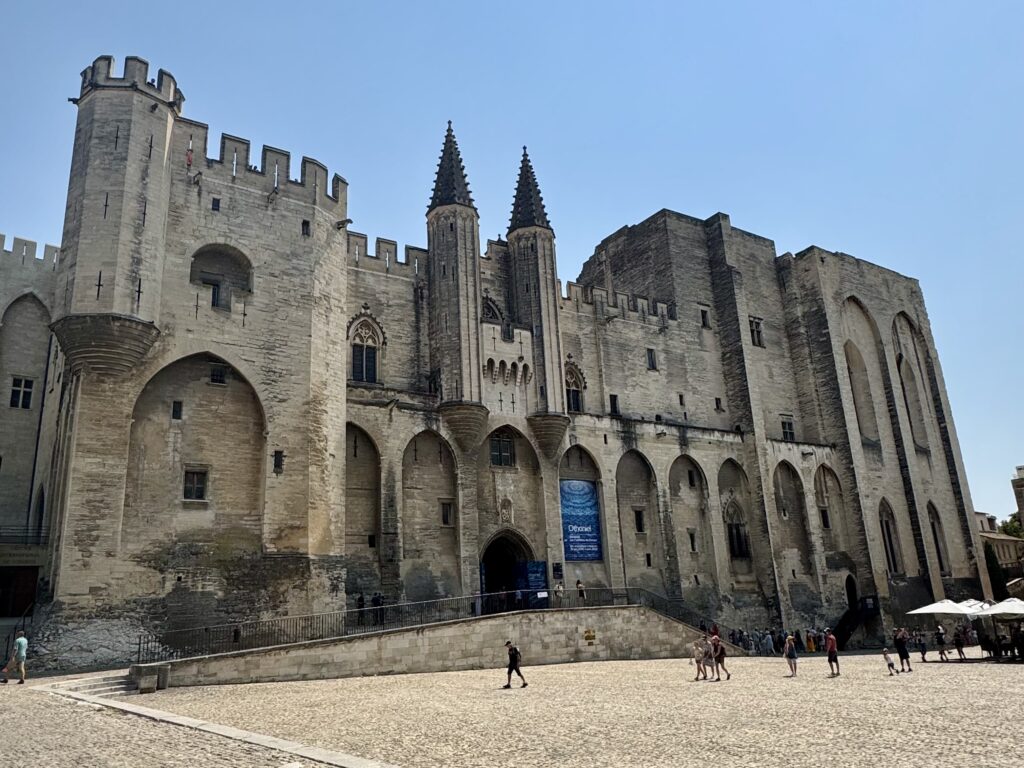
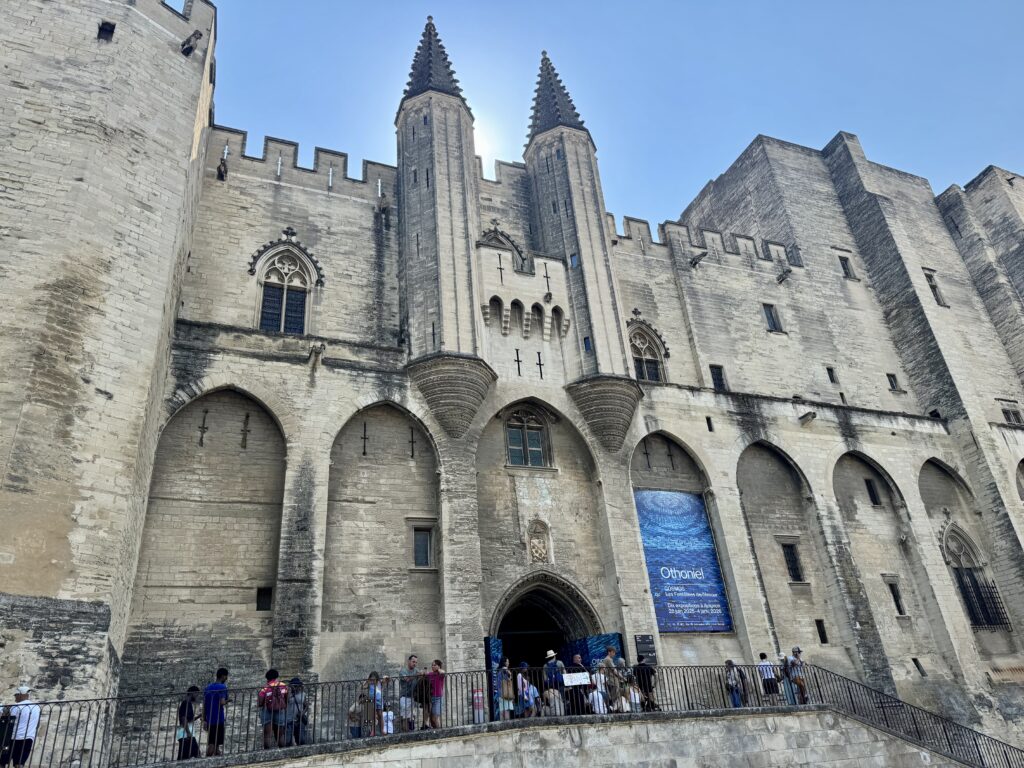
It’s also one of the few French cities to have preserved its city walls.
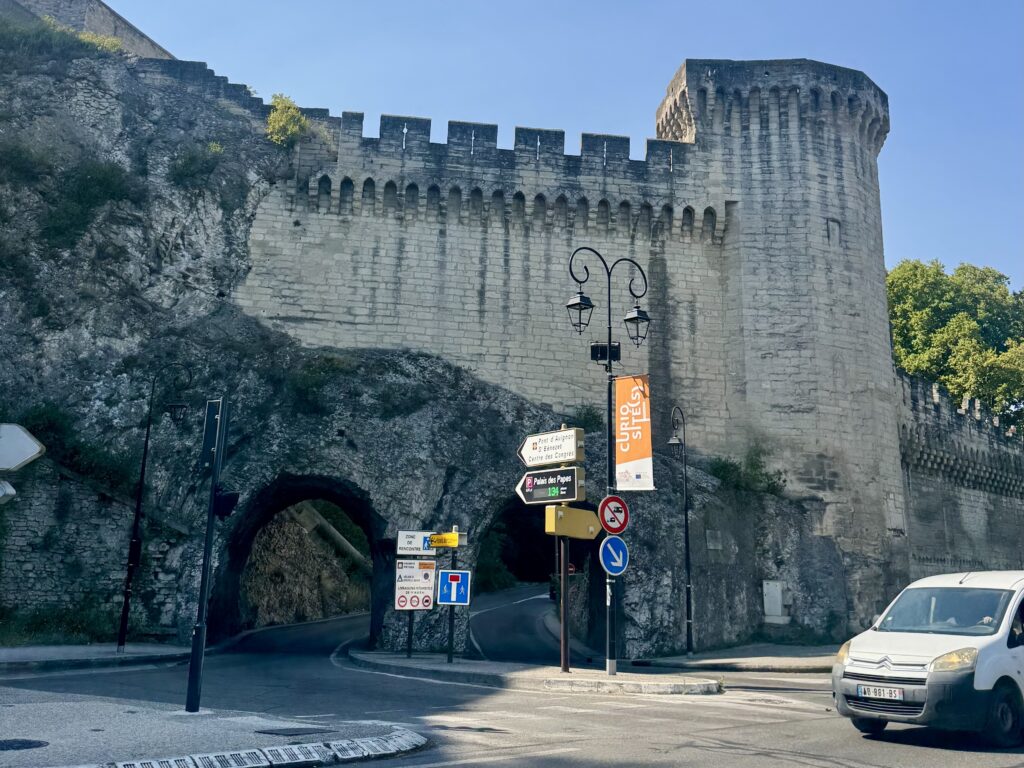
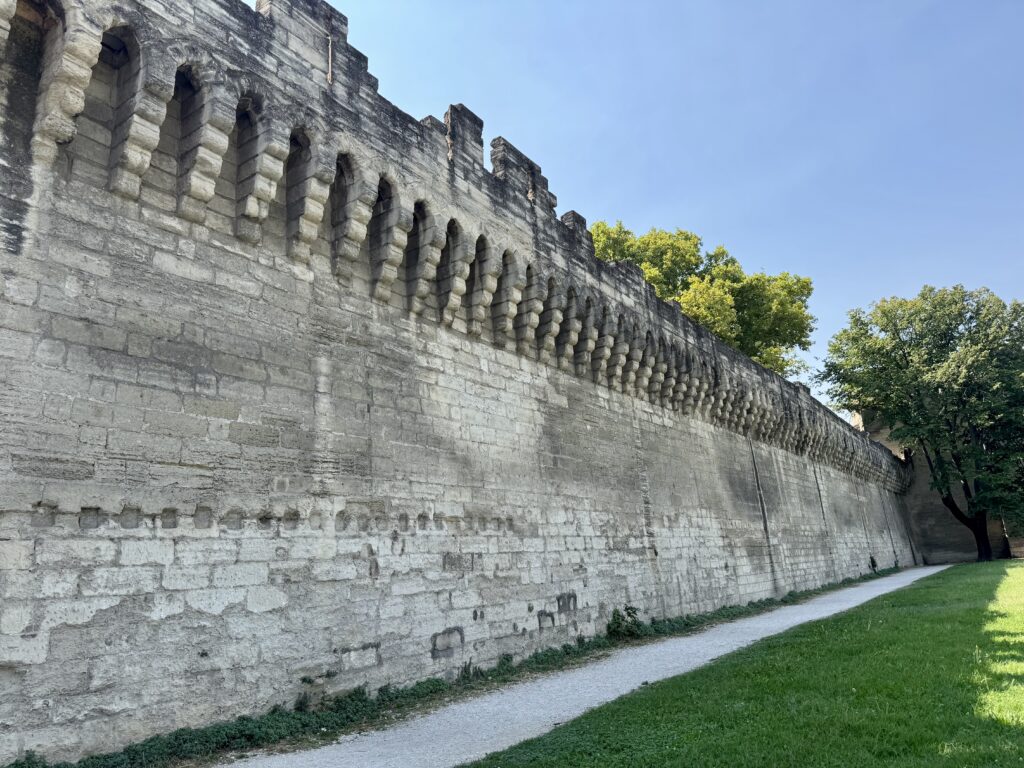
Pont Saint-Bénézet, also known as the Pont d’Avignon, was a medieval bridge that crossed the Rhône River Constant flooding swept away many of the arches and only four arches survive today as pictured below.
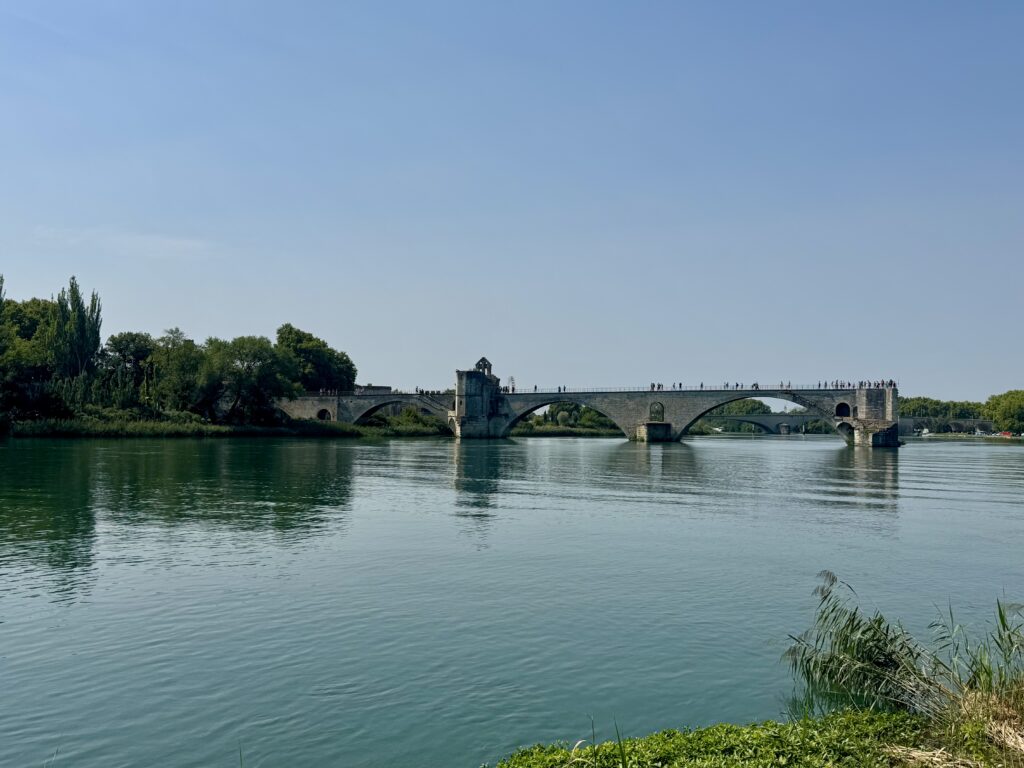
Rather than walk the bridge, Nik and I took the free ferry that crosses the river so we could actually view the bridge.
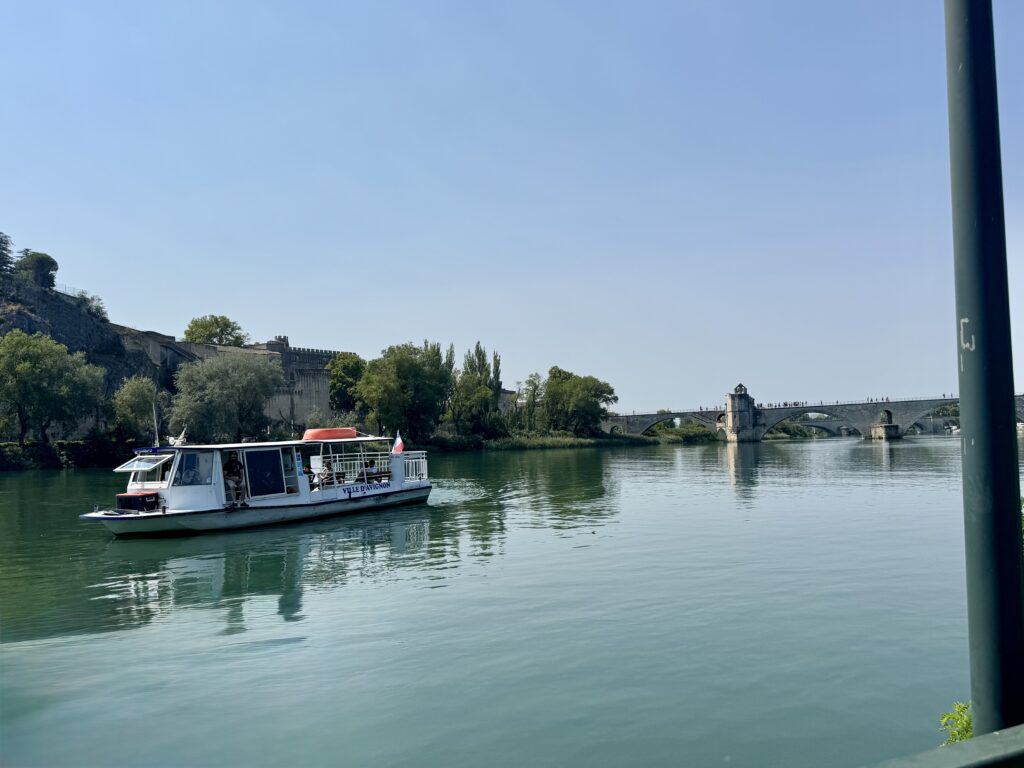
After walking through the Old Town, Nik and I settled on lunch at a spot in Place de l’Horloge (Clock Square), Avignon’s main square. Surrounded by beautiful buildings it was a lovely few hours spent in the town.
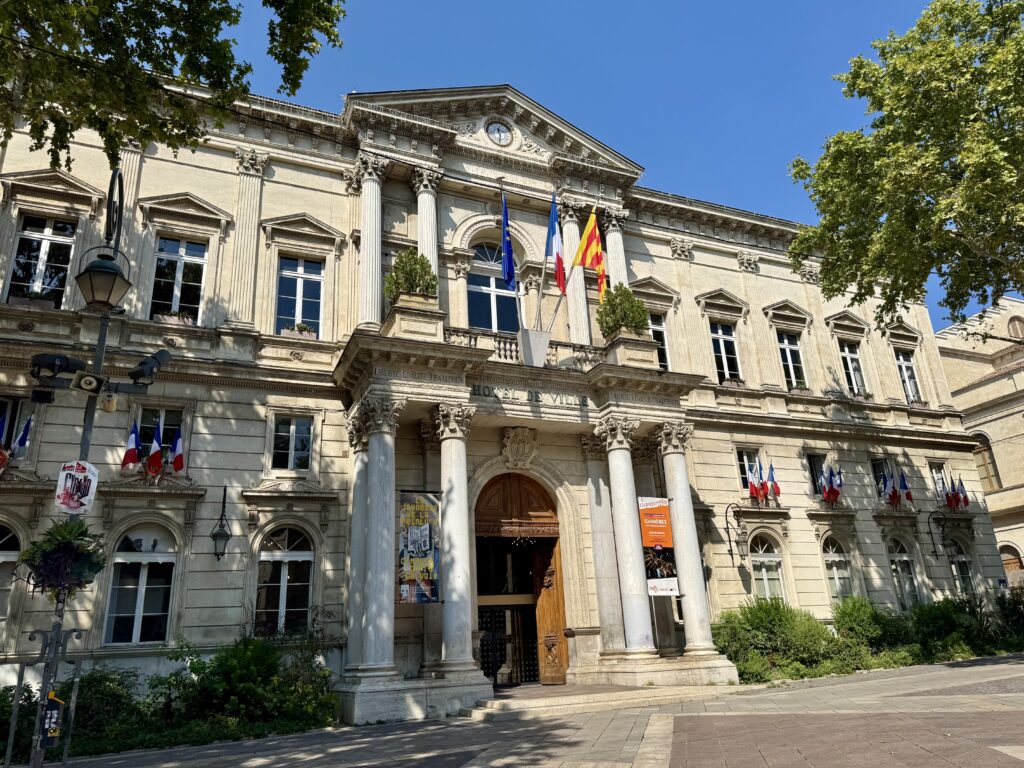
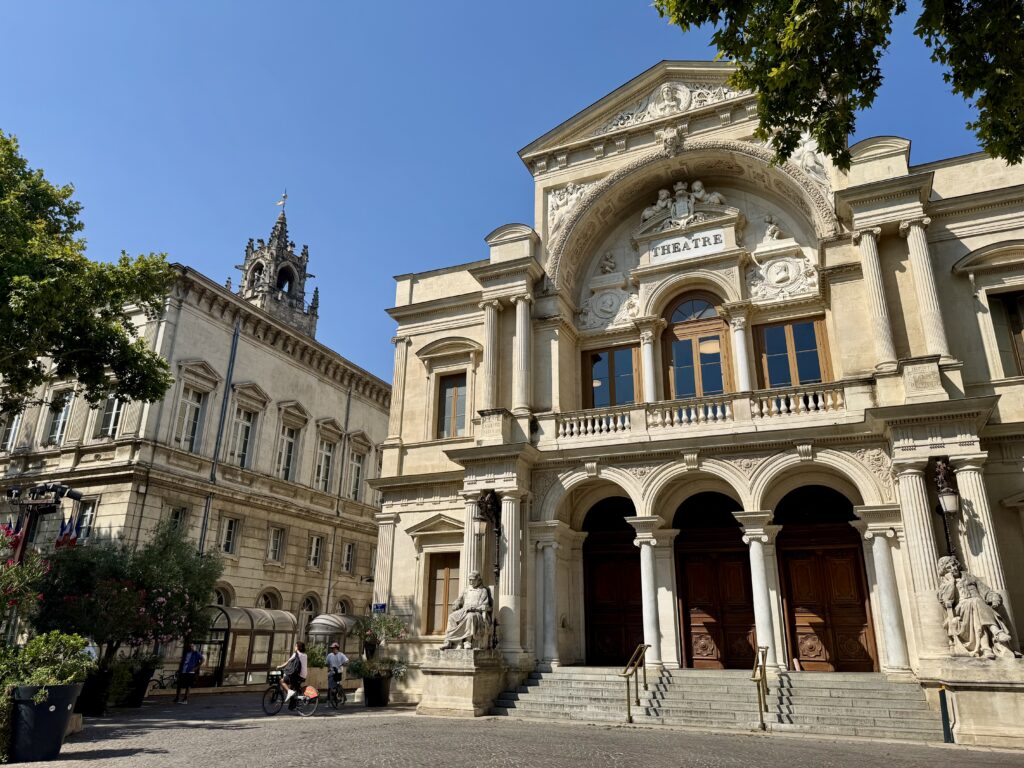
Both the bridge and the Palais des Papes are open for tours, but we preferred the free ferry for a different view of the town.
